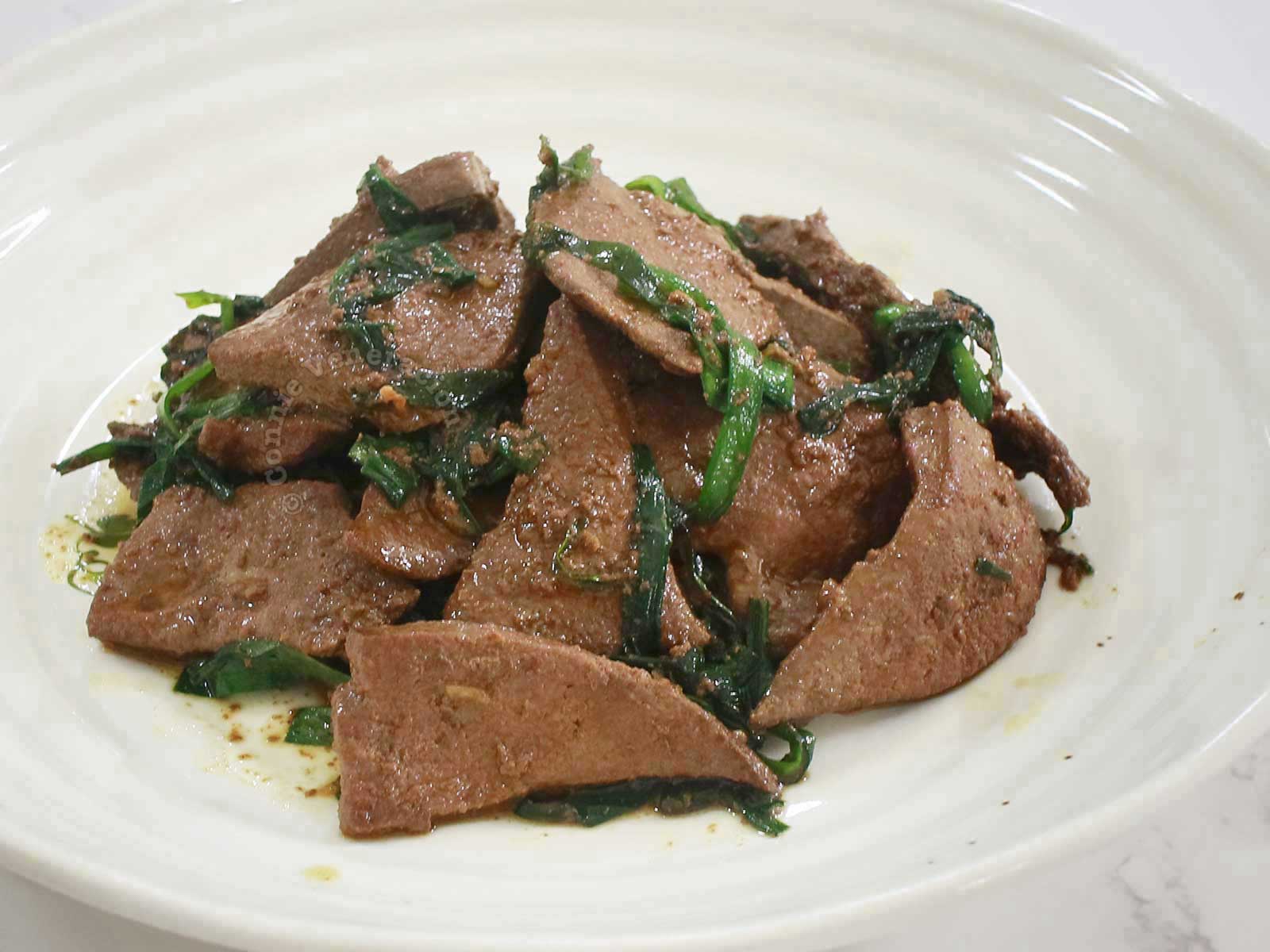Pork liver is a nutrient-rich organ meat known for its high concentration of vitamins and minerals.
It’s a staple in various cuisines worldwide, often used in dishes like pâté, stir-fries, and soups.
Many people appreciate pork liver for its unique flavor and its wealth of health benefits.
As one of the most nutrient-dense foods available, pork liver provides essential nutrients that support many bodily functions.
However, it should be consumed in moderation due to potential side effects when eaten in large amounts.
Nutritional Profile of Pork Liver
Pork liver is loaded with vitamins, minerals, and macronutrients.
Some of the key nutrients include:
- Vitamin A: Essential for vision, immune function, and skin health, pork liver has exceptionally high levels of vitamin A, which is important for overall health.
- Vitamin B12: Necessary for red blood cell formation, nerve function, and DNA synthesis, vitamin B12 is abundant in pork liver, supporting energy levels and cognitive function.
- Iron: Pork liver is a rich source of iron, especially heme iron, which is more easily absorbed by the body than non-heme iron found in plant sources. This makes it particularly beneficial for individuals with iron deficiency or anemia.
- Protein: As a high-protein food, pork liver supports muscle growth, repair, and immune health.
- Copper, Zinc, and Selenium: These trace minerals in pork liver contribute to immune function, skin health, and antioxidant defense.
With such a comprehensive nutrient profile, pork liver is considered a superfood when it comes to providing essential vitamins and minerals.

Health Benefits of Pork Liver
1. Supports Vision Health
Due to its high vitamin A content, pork liver supports vision health, particularly night vision.
Vitamin A plays a critical role in maintaining a clear cornea, the outer covering of the eye, and is essential for eye health, which is why pork liver is often recommended for individuals with poor eyesight.
2. Boosts Energy Levels
The B vitamins in pork liver, especially B12, play an important role in converting food into energy, supporting the body’s metabolic processes, and preventing fatigue.
Consuming pork liver can be an effective way to maintain high energy levels and prevent symptoms related to vitamin B deficiency, such as tiredness and cognitive decline.
3. Improves Iron Levels and Prevents Anemia
Iron deficiency is one of the most common nutritional deficiencies, and pork liver is an excellent source of heme iron, which the body absorbs more efficiently than plant-based iron.
This makes it an ideal food for people who are prone to anemia or have low iron levels, as it helps increase hemoglobin and oxygen transport in the body.
4. Enhances Immune System Function
The immune-boosting properties of pork liver come from its zinc, selenium, and copper content.
These trace minerals are essential for producing and activating immune cells, which help fight infections and maintain a healthy immune response.
Selenium also functions as an antioxidant, protecting cells from damage and reducing inflammation.
5. Promotes Skin Health
The vitamins A and B2 (riboflavin) in pork liver contribute to healthy skin by supporting cell growth and repair.
Vitamin A is particularly effective for skin health, as it helps regulate cell production and turnover, which can improve skin texture and reduce signs of aging.
The high-quality protein in pork liver further supports the structure and elasticity of the skin.

Potential Side Effects of Pork Liver
1. Risk of Vitamin A Toxicity
While vitamin A is essential for health, consuming excessive amounts can lead to toxicity, known as hypervitaminosis A.
Since pork liver is so high in vitamin A, eating it frequently or in large quantities may increase the risk of vitamin A toxicity, which can cause symptoms like nausea, headaches, dizziness, and in severe cases, liver damage.
2. High Cholesterol Content
Pork liver is high in cholesterol, which can be a concern for people managing cardiovascular health.
While dietary cholesterol doesn’t impact everyone’s blood cholesterol levels equally, individuals with a predisposition to high cholesterol or heart disease should consume pork liver in moderation or consult with a healthcare provider.
3. Possibility of Allergic Reactions
Though rare, some people may experience allergic reactions to pork or organ meats, which can result in symptoms ranging from mild digestive issues to more severe reactions like skin rashes or anaphylaxis.
Anyone with known food sensitivities or a history of allergies should approach pork liver cautiously and consider allergy testing if necessary.
4. Potential for Increased Uric Acid
Organ meats like pork liver contain purines, compounds that can increase uric acid levels in the body.
For individuals prone to gout or kidney issues, high uric acid levels can lead to painful joint inflammation or worsen kidney function.
Those with these conditions may need to limit or avoid pork liver to prevent flare-ups or complications.

How to Enjoy Pork Liver Healthily
To enjoy pork liver’s health benefits while minimizing potential risks, moderation is key.
For most people, eating pork liver once a week or less can provide ample nutrients without the risk of vitamin A toxicity or cholesterol-related issues.
Additionally, pairing pork liver with a balanced meal that includes vegetables, whole grains, and healthy fats can help create a more nutrient-dense meal and reduce the overall intake of cholesterol and purines.
If you’re new to pork liver, consider starting with small amounts to assess how well your body tolerates it.
Opting for high-quality, fresh pork liver can also help ensure better nutrient retention and reduce the risk of foodborne illness.
Frequently Asked Questions (FAQs)
Is pork liver safe to eat daily?
While pork liver is nutrient-dense, eating it daily is not recommended due to the high vitamin A content, which can lead to toxicity.
For most people, once a week or less is sufficient.
Can pork liver improve iron levels?
Yes, pork liver is rich in heme iron, which is highly bioavailable and effective at increasing iron levels, making it beneficial for individuals with anemia or low iron.
Is pork liver good for skin health?
Yes, the vitamin A and protein content in pork liver support skin health by promoting cell turnover and elasticity, making it a valuable food for maintaining healthy skin.
Does pork liver increase cholesterol?
Pork liver is high in cholesterol, which may impact blood cholesterol levels for some people.
Those with cholesterol management concerns should consume it in moderation.



